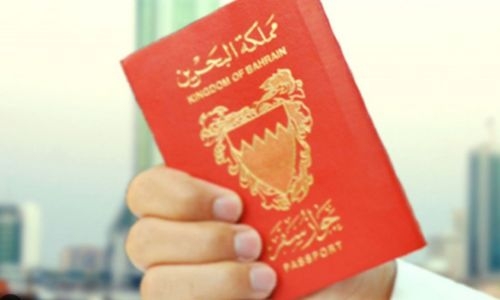The Bahraini government, through the Ministry of Interior, is doubling down on its efforts to maintain the security of the Kingdom, particularly when it comes to the legal status of foreign visitors and residents. Visa and residency regulations are being tightened, with a focus on preventing the conversion of visitor visas into work permits. A new policy now requires guarantors to commit to not converting visitor visas, ensuring that immigration officials can demand a Bahraini guarantor when necessary.
Additionally, a recent decision by the Minister of Interior has introduced new fees for services provided by the General Directorate of Nationality, Passports, and Residence. This decision aims to curb the conversion of visitor visas into work permits or family reunification visas without a guarantor. However, conversions for the same guarantor are permitted for a fee of 250 Bahraini dinars. The government is urging parliament to reconsider a draft law that seeks to ban the conversion of entry visas granted for visiting purposes into work permits, arguing that the current regulations already achieve the desired objectives.
The government believes that existing laws, including the Foreigners (Immigration and Residence) Law, provide a solid framework for managing the entry and residence of foreigners in Bahrain. Article 18 of this law allows for the issuance of residency permits to foreigners who can support themselves and their dependents or wish to work in the country. It also gives the government discretionary power to issue and determine the validity of residency permits, as well as issue permits in specific cases at its discretion. The government is emphasizing the importance of sticking to the existing legislative framework when proposing new laws, to avoid contradicting established legislation.
In its statement, the government argued that the draft law against the conversion of entry visas into work permits goes against the principles of the Foreigners Law, which sets out a comprehensive approach to managing foreign residents in Bahrain. The government suggests that the general framework should be set out in the law, with details left to executive regulations and ministerial decisions. This approach allows for more flexibility and easier amendment in response to changing circumstances, unlike laws that require lengthier procedures for amendment.
Overall, the Bahraini government is standing firm on its commitment to safeguarding the Kingdom’s security and protecting the legal status of foreign visitors and residents. By tightening visa and residency regulations and implementing new fees, the government aims to prevent the unauthorized conversion of visitor visas into work permits while upholding the existing legislative framework governing foreign residents in Bahrain. The government’s plea to parliament to reconsider the draft law reflects its belief in adhering to established legislation and ensuring flexibility in responding to evolving circumstances. In the face of potential threats, the government is determined to maintain a robust and secure environment for all those living and visiting Bahrain.


























